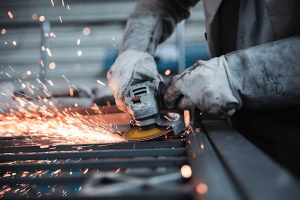 Keeping your employees safe in the workshop ensures that your business runs smoothly. A safe work environment is one of the most important things you can provide for your employees and customers. As a workshop manager, you must ensure that all safety protocols are followed. This blog post will discuss some key safety tips workshop managers should follow to keep their employees out of harm’s way.
Keeping your employees safe in the workshop ensures that your business runs smoothly. A safe work environment is one of the most important things you can provide for your employees and customers. As a workshop manager, you must ensure that all safety protocols are followed. This blog post will discuss some key safety tips workshop managers should follow to keep their employees out of harm’s way.
Table of Contents
Outline Procedures and Rules for Working with Tools
Tools are essential to any workshop, but they can also be dangerous if not used properly. Therefore, creating rules and guidelines for working with tools is necessary so everyone knows how to use them safely. This includes laws about proper clothing, such as wearing long pants when using power tools and using only approved tools for specific tasks. In addition, workshop managers should ensure workers have been trained on using each device before allowing them to use it unsupervised in the workshop.
Provide Training and Education
Training is crucial for workplace safety, especially in a workshop where many potential hazards could lead to injury or illness. Ensure every employee receives adequate training on safely operating machines and equipment in the workspace. Additionally, provide ongoing education and training on new procedures or changes that could affect their safety while working at the shop. Hold regular meetings to review safety policies and procedures and any further information or changes that may arise throughout the year.
Perform Regular Inspections
Inspections are essential to keeping your workshop safe and up-to-date on safety protocols. Regular inspections allow you to identify potential hazards before they become a problem or cause injuries or illnesses among your workers. During these inspections, look for anything hazardous, such as faulty wiring, exposed nails or screws, slippery floors, etc., and take care of them immediately by making repairs or replacing parts as needed. Additionally, make sure emergency exits are marked and accessible in case an emergency arises while working in the shop.
Keep It Clean And Organised
A clean, organized workspace is key to a safe working environment. Ensure tools are properly stored and in good working condition so employees can quickly locate them when needed without having to search for them. Encourage workers to keep their work area neat by implementing rules such as cleaning up after finishing each task or project. Additionally, consider adding garage floor tiles to help keep the site clean and reduce the risk of slips or trips. Garage Floor Tiles are a great way to give your workspace some extra protection from dirt, dust, and debris and provide a safer working surface for employees in the workshop.
Have The Correct PPE On Hand
You must provide your workers with personal protective equipment (PPE) when necessary. This includes safety glasses, hard hats, gloves, hearing protection, and other items depending on the type of work being done in the shop. Ensure employees are aware of the PPE available to them and encourage them to use it whenever necessary. Additionally, it’s essential to inspect all PPE regularly to ensure it is in good working condition and can protect employees from potential hazards in the workshop, as well as ensure employees know how to wear the specific type of PPE correctly.
Have Equipment Serviced Regularly
A well-maintained workshop is safe, so ensure you have all equipment serviced regularly and inspected for any potential problems. Keep up to date on servicing and maintenance schedules for machines, tools, and other equipment used in the shop to avoid issues down the line that could lead to injury or illness. Additionally, keep records of all servicing and maintenance performed on machines and equipment to ensure they function correctly.
Have An Equipment Sign Out Sheet Available
To ensure employees are always using the right tools for the job and not taking shortcuts, consider having a piece of equipment sign-out sheet available. This will allow employees to check out specific task tools and record who used them and when. This will help track which devices have been used and ensure they are being returned promptly.
No matter what type of shop you manage—a woodworking shop, auto body shop, or metal fabrication shop—it’s always important to prioritize safety above all else when protecting your workers and customers from harm’s way. By following these simple tips for providing adequate training for all personnel operating machinery in the workshop; outlining procedures for working with tools; performing regular inspections; and addressing any issues quickly when they arise—you can help ensure everyone stays safe while doing their job each day in the shop!